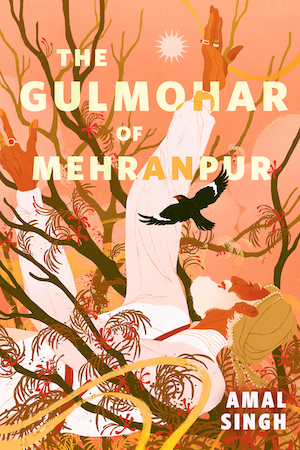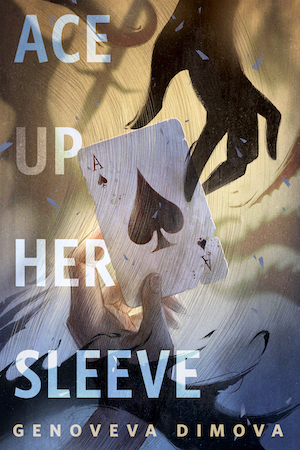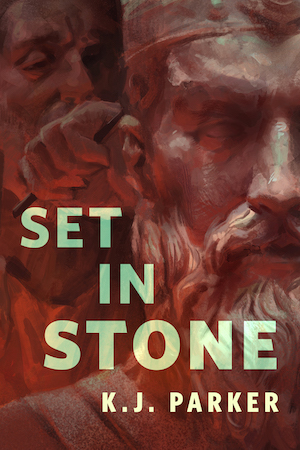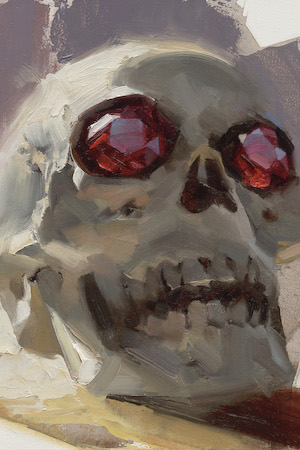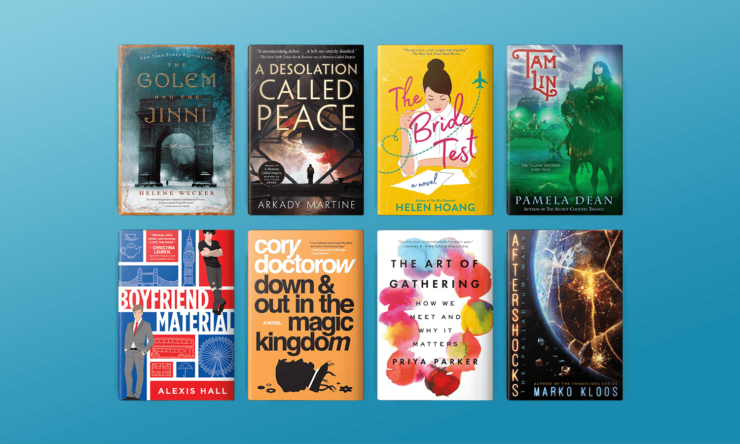January was another lockdown month—worse than ever, because now we have a curfew at 8 PM and huge fines for breaking it, which means it’s not just illegal but pretty much impossible to see anyone. Isolation is really getting to me. The numbers are going down, though, which is good, and people are starting to be vaccinated, though I am low on the list. In any case, I spent a lot of time in January on pure escapist reading, and I read twenty-eight books in a variety of genres, with a very high rate of excellence.
Boyfriend Material, Alexis Hall (2020)
A delightful romance, recommended by a friend. Two men in London who haven’t been making relationships work pretend to be each other’s boyfriends and of course end up falling in love. Really well written, memorable, and really fun to read. As an attempt to read feel-good romances that are not set in Italy but are actually good, this was really successful.
Rhododendron Pie, Margery Sharp (1930)
Margery Sharp was my top discovery of 2018, and I am delighted to find her first six books being released as ebooks now. I pre-ordered all of them and started reading this on the day it came out. I will try to restrict myself to reading the others one per month to make them last. This was her first novel, and it’s about the conventional member of an eccentric family. It’s funny and witty and biting and I enjoyed every moment of it. You could start here—almost all her adult books are standalones, she also wrote some children’s books about mice that are a series—but if you haven’t read her at all, I recommend starting with either Britannia Mews or The Eye of Love.
Ascendance of a Bookworm, Miya Kuzuki (2015)
Japanese light novel, available in translation, about a girl in her twenties who loves books, is crushed to death by a book avalanche in an earthquake, and reincarnated in a world like medieval Europe except that people have blue or green hair. So far so good, and the bits of this that were great were a five-year-old with the mind and memories of someone older and from a totally different culture trying to recreate the tech to make books. (It’s weird that what she wants is not story but physical books. But OK.) I won’t be reading the sequels however because I found the romantic stuff really too uncomfortable with characters who are five and six and seven—and thinking she’s really older only makes it worse.
The Bride Test, Helen Hoang (2019)
Sequel to the terrific Kiss Quotient that I read in December. If anything, even better—a romance novel about immigration and honesty and in which a secret which you think is going to be a final problem needing resolution is greeted with bemused delight. Now I have to wait until summer for the third book.
Seduced By Logic: Emilie du Chatelet, Mary Somerville and the Newtonian Revolution, Robyn Arianrhod (2000)
This book is very long and contains more math than I actually wanted, but it is a good biography of two female mathematicians in their different centuries, and covers enough time, because of the two subjects, that you can see attitudes changing—not always for the better.
Somewhere in England, Carola Oman (1943)
Not exactly a sequel to Nothing to Report (1940) but shares some characters and a village. Written and set in 1943, it’s the story of a girl working as a wartime nurse, and a group of the kinds of women you get in 1930s novels coping with air raids and bombs and grief and loss, but also reunions and spring and competence and… there’s something really different about reading WW2 books written during WW2 by people who didn’t know what was going to happen. The general atmosphere of this is almost entirely positive, and if she wrote it to cheer people up it’s still working.
A Desolation Called Peace, Arkady Martine (2021)
Now with aliens and more points of view than A Memory Called Empire! Readable, baroque, complex, full of intrigue, language, and spaceships. I couldn’t put it down. Having said that, when I did put it down and thought about it, I wanted Mahit to have more agency, which was not a problem with the first book. Nevertheless, really absorbing, the kind of book that makes you forget your own world, so highly recommended, buy it the second it comes out.
Italian Neighbours, Tim Parks (1985)
A memoir of living in Italy, by the author of Medici Money. An attempt to try reading things set in Italy that are not feel-good romances. I’ve been thinking recently about openness and vulnerability in memoir and travel writing, and how much I want the presence of the narrator. This is a book where the narrator is telling me a lot of funny stories about his neighbours and there’s no real feeling of who he is, and certainly he isn’t prepared to take any risks of opening himself up to the reader. Some of the stories were indeed funny, and there is a great deal of Italy and Italians in this book, which I wanted, but more reserve than I’d have liked, so the effect is a little disappointing.
Outposts, Algis Budrys (2020)
The final collection of Algis Budrys’s reviews, introductions, and essays about science fiction. I’ve really enjoyed all of these, but this one had rather more of Budrys telling people how to write SF and rather less of him being excited by books than in previous volumes. All the same, I’m glad I read it, and sorry there isn’t more.
From Paris With Love This Christmas, Jules Wake (2015)
This one actually comes before From Rome With Love, not that it matters. A fun feel-good romance. Not as much fun as the first one in the series, but fun. Too much Britain and not enough Paris, and no Italy at all… but I did know that.
Quarter Share, Nathan Lowell (2007)
This was recommended as a book in which no bad things happen, and you know, it totally is after the events of the first chapter propel the protagonist into a job on a space ship. This is kind of like a game of Elite on peaceful mode, or like a book written by a much nicer kinder C.J. Cherryh. There are space stations. There is trading. There are tests to study for, and pass. There’s friendship and mentoring. Women exist. Basically it’s like the chapters in this kind of book before things start going wrong, only they never do. Sometimes, I guess I might want more excitement, but it was never boring, and right now, it’s perfect, so thank you. Also there are a ton of sequels.
A Match Made for Thanksgiving, Jackie Lau (2019)
Another feel-good romance recommended by the website Smart Bitches, Trashy Books, part of a series, very well written, great characters, set partly in Toronto and partly in small-town Ontario, excellent families, terrific characters, first in a series.
Down and Out in the Magic Kingdom, Cory Doctorow (2000)
Re-read. It’s funny to think this was written before the Pirates of the Caribbean movies, and before smartphones, but the future still holds up pretty well as a future, twenty years on. In a post-scarcity and post-death future, where reputation is the only currency and bad decisions can still screw you over. It’s interesting reading this first novel now, after Doctorow has developed so much as a writer. It still has the same flaws it always has—the engaging first person nerd character is a jerk—but it’s still readable and still a pretty good attempt at that difficult subgenre of story set in utopia.
Can You Keep a Secret? Sophie Kinsella (2003)
Feel-good romantic comedy. Now I admit it would be better if set in Italy or on a space station, but as it was this was terrific, frothy, hilarious and warmhearted, with great family and friends. It’s a book that sees the funny side of everything, and also has its heart in the right place. It’s sufficiently character-driven that the misunderstandings and coincidences really seem natural. Don’t be put off by the covers. This is the first Kinsella I have read, but I can see I’ll be reading through her entire backlist. Watch this space.
Diaries, George Orwell (2009)
This was a long book that I’ve been reading for over a year—I am always reading sixteen books, and this has been one of them for a long time and now I’ve finished it I miss it. I’d say it’s for Orwell completists, because it’s all of his diaries and you’re going to be spending a lot of time with him as you read this, not just when he goes to Wigan but also as he collects and counts eggs while noting preparations for war, and when he notes the routine of the hospital he’s dying in. I neither recommend nor disrecommend this—if you love Orwell, you’ll eventually, inevitably, come to it anyway.
A Postcard From Italy, Alex Brown (2019)
Maybe it was because I’d just read the Kinsella, but really this was a bit thin. There isn’t enough Italy in it, to start with, and the heroine’s mental issues are cured a little too easily by it when she gets there, and indeed all the resolution of her problems is too easy—I don’t mind not having issues, but if there are issues they do need resolution rather than evaporation. The historical romance she’s researching and which is set up to be mysterious is also a bit too obvious.
The Measure of Malice, edited by Martin Edwards (2020)
One of the series of British Library Crime Classics short stories of Golden Age of Crime edited by Edwards. These are “scientific” mysteries, but not what we’d think of as scientific. There are some really great stories here and very few duds. I didn’t find any new-to-me undiscovered writers this time—I’ve been reading these collections for a while now—but I really enjoyed it.
Aftershocks, Marko Kloos (2019)
I’d had this lying around on my Kindle for ages and I eventually got to it. I enjoyed Kloos’ Lanky series and was expecting this new series to be similar, and wasn’t in any hurry because I wasn’t invested. I was so so wrong. This was really great, the big surprise of my reading month—keeping the good things but lacking the flaws of his debut series, a much more grown-up book, in a much more thought through and sophisticated future. I bought the second one instantly once I finished this and am reading it now. This is set in another solar system in the future where all the planets have been colonised and a war of aggression in which one planet attacked all the others ended five years ago, leaving huge social and material aftereffects. We have four points of view, two male and two female, as things are starting to stir. Brilliant. I’m kicking myself for not reading it sooner. It’s great to see a writer grow like this.
A Month in Siena, Hisham Matar (2020)
A memoir, set in Italy, this one very open and vulnerable and real, and absolutely terrific—he’s talking about himself as a Muslim man relating to Christian art, about the loss of his father, about Italy’s relationship with Libya, about the people he meets, about the city and his developing relationship with it, and he’s putting himself on the page for me. I loved this.
Letters of C.S. Lewis, C.S. Lewis (1966)
Despite everything, I feel very fond of Lewis. You really get to know people through their letters, even heavily edited volumes like this, and you get to see their uncertainty and hesitations and attempts at joking. I am glad I got to get to know Lewis this way. He’s an odd duck, and I disagree with him bitterly about some things, but he’s visibly doing his best most of the time, and he wouldn’t have written the diverse quirky things he did write if he hadn’t been himself.
The Paris Wife, Paula McLain (2011)
Another unexpectedly great book that I’d picked up idly and had lying around unread. This is a novel, first person, from the POV of Hadley, Ernest Hemingway’s first wife, in Paris in the 1920s. I wasn’t expecting it to be something I couldn’t put down—I dislike Hemingway—but it really was. Terrific voice, and it manages to be a story about Hadley, not about Hemingway, and it manages to make Hemingway life-size, no larger.
The Art of Gathering, Priya Parker (2018)
I read this to see if I could learn anything for running better conventions, and found good terms for a bunch of things I already do and one or two really useful suggestions. She’s not really talking much about the kind of events or the kind of problems I have, but I’m glad I read it. There’s nothing in here about online gatherings, it’s all in person, but it’s definitely thought-provoking in a bunch of ways.
Tam Lin, Pamela Dean (1991)
Re-read, Regular Reading book. It was very interesting listening to a book I know this well, hearing Gretchen give it inflections and having some friends come across things for the first time and talking about it. I love it, all of it, every play (how I miss going to live theatre), every class, every reference. There’s something really different about reading a book for the tenth, the twentieth time, knowing it really well, and still being apprehensive. I’ve written about it here before. I still love it.
The Club: Johnson, Boswell, and the Friends Who Shaped an Age, Leo Damrosch (2019)
An excellent and powerful book that’s mainly a biography of Johnson and Boswell, but by taking as the angle of focus the members of the Club it allows a better perspective on the two men as well as their time. Damrosch also pays much more attention to women than is common in books of this kind written by men, and I commend him for it. Johnson’s female friends are important, and it’s great to hear so much about them. Also excellent on Reynolds the painter, Garrick the actor, Smith the economist, Burke the politician and many more, while always circling back to Johnson and Boswell. Very good.
Devotions: The Selected Poetry of Mary Oliver, Mary Oliver (2019)
I only recently discovered Oliver, and while I enjoyed this long collection I would perhaps have enjoyed it better interspersed with other things, as her “Gosh look at nature it’s so great it makes me think of God” schtick got a little repetitive. Much of her work is very beautiful, but she doesn’t have as many things to say as some poets.
The Golem and the Jinni, Helene Wecker (2013)
Another book where my heart sank to discover there’s a sequel. This book does not need a sequel. Excellent evocation of nineteenth-century New York and the Syrian and Yiddish communities thereof, absolutely convincing portrayals of the Jinni and the Golem and their very different personalities and attitudes to life. I was disappointed by some aspects of the ending, but on the whole this book is as good as everyone says and you should read it.
Aspects of the Novel, E.M. Forster (1927)
I’d never read this, though I’d often heard it quoted from. Sometimes he’s so wrong he couldn’t be wronger, sometimes he’s thought-provoking, sometimes I wish Forster could read Delany, or McHugh, and see what patterns in a novel can be. I’d say I had about equal parts of “Yes,” “No!” and “Huh?” when reading this, which isn’t bad, and when he talks about books he’s interesting even when wrong, and I like his attempt to get away from period and influence by grouping by sensibility.
The Star Crossed Sisters of Tuscany, Lori Nelson Spielman (2018)
A slightly pedestrian romance novel set in Italy, but with some good things about it—there’s a curse on second daughters of the Fontina family that they can’t find love, and two cousins and a great aunt set off to Italy to try to break it. Just as with A Postcard From Italy, I totally guessed the “mystery” of the historical part of the book, but unlike in that book I felt vindicated to be right and not bored. Interesting to think about that in terms of reader investment. You want the reader to be saying “Yes!” and not “Yeah yeah” at your revelation. There are also some good descriptions of Italy, and a very good family—and it did bring tears to my eyes at one point towards the end, at a totally sentimental moment but done very well. Clearly “Jo in a pandemic” is not the only market for “feel-good romance set in Italy” or there wouldn’t be so many, so if you’re looking for one this one is actually pretty good, though not as good as Nicky Pellegrino.
Jo Walton is a science fiction and fantasy writer. She’s published two collections of Tor.com pieces, three poetry collections, a short story collection and fourteen novels, including the Hugo- and Nebula-winning Among Others. Her previous novel, Lent, was published by Tor in May 2019, and her fifteenth novel, Or What You Will, came out on July 7, 2020. She reads a lot, and blogs about it here irregularly. She comes from Wales but lives in Montreal. She plans to live to be 99 and write a book every year.


